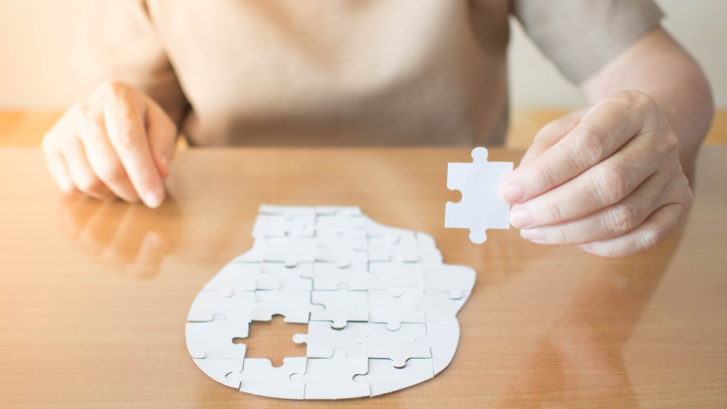Link Found Between High Blood Pressure and Dementia
The reason our concierge family doctors at MD 2.0 in Jupiter spend so much time focusing on controlling blood pressure is because of the myriad ways hypertension can play havoc with the body’s healthy functioning.
High blood pressure has long been associated not only with an increased risk of heart attack and stroke, but with heart failure, chronic kidney disease, vision loss, and sexual dysfunction.
Protection against dementia
Now add to that list an increased risk of dementia, according to a new study just released by the U.S. National Institute of Neurological Disorders and Stroke (NINDS). Published this month in the Journal of the American Medical Association (JAMA), researchers at the National Institutes of Health’s (NIH) NINDS examined more than 9,300 people ages 50 and older for over three years.
Researchers used magnetic resonance imaging (MRI) to scan the brains of participants in the NIH’s Systolic Blood Pressure Intervention Trial (SPRINT). They found that found those who received “intensive” measures to bring their systolic blood pressure lower than normal (below 120) showed a measurable slowing of accumulation of certain lesions in the brain’s white matter that are indicative of cognitive impairment. Those who received “standard” measures didn’t fare as well, although they showed some improvement.
As a result of this study, the NIH will soon begin a larger trial to learn whether aggressive treatment will help stave off age-related dementia.
“If you look . . . for things that we can prevent that lead to cognitive decline in the elderly, hypertension is at the top of the list,” Dr. Walter Koroshetz told the Associated Press (AP). Koroshetz is the deputy director of NIH’s NINDS.
“I strongly urge people to know your blood pressure and discuss with your doctors how to optimize control,” Koroshetz added. “It may be a key to your future brain health.
Ways to lower your blood pressure
There are many lifestyle changes that can help reduce blood pressure.
1. Eat well
Stick to a diet comprising primarily natural foods—whole grains, fruits, vegetables, lean meats and fish. Potassium-rich foods (bananas, citrus fruits, avocados, potatoes, nuts, seeds, berries, beans, dairy, and vegetables) all help rid your body of sodium. Processed foods are especially high in sodium, so it’s best to avoid them whenever possible.
2. Lose weight
For every two pounds you lose, you can lower your blood pressure by one point. This is one of the best and most reliable ways to lower blood pressure, and is easier to accomplish if you follow the dietary advice above.
3. Exercise regularly
Exercise is also an excellent way to lower blood pressure, as well as improving your health overall. As little as 30 minutes a day of regular exercise can drop your blood pressure by up to 10 points. More exercise will lower it even more.
4. Reduce stress
Chronic stress is a killer, and contributes to high blood pressure by raising cortisol (the fight-or-flight hormone) and constricting blood vessels. It’s important to not only reduce stress when you can, but to control your reactions to it when you can’t. Deep breathing, mindfulness meditation, engaging hobbies . . . anything that calms you and gives you even a brief respite from the daily stresses in your life can help lower your blood pressure.
5. Decrease sodium (salt) intake
Because salt causes the body to retain fluids, it increases volume (blood pressure) within blood vessels. Some groups of people (African Americans, the elderly, and those with a family history of high blood pressure) are particularly salt sensitive. Limiting salt intake to less than a teaspoon a day (2,000 mg) is an effective way to lower blood pressure.
6. Quit smoking
Every time you light up a cigarette, your blood pressure increases, and the effect lasts for up to 30 minutes after you put it out. See us if you need help to quit.
7. Indulge (a little)
Dark chocolate has been shown to reduce blood pressure as much as a low-dose aspirin, and just a half-ounce of 70-percent-cocoa chocolate daily will work.
8. Limit alcohol
One drink a day for women—that is, 12 ounces of beer, five ounces of wine, or 1.5 ounces of 80-proof liquor—or two for men has been shown to lower blood pressure. More than that has the opposite effect.
If these steps don’t bring your blood pressure within normal levels, you may need medications. Because a healthy blood pressure is key to staving off so many serious illnesses, we will continue to stress its importance to maintaining your health.

